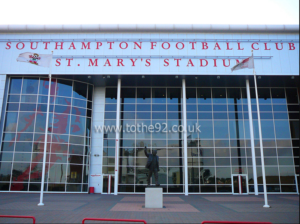
Ayodele-Aribo has made it unequivocally clear: meet his demand, or he’s out the door. His stance is resolute, his tone unwavering. It’s a bold move, a line drawn in the sand. Negotiations hang in the balance, teetering on the brink of resolution or rupture. His demand, whatever it may be, holds significant weight, enough to sway the trajectory of the situation.
The air crackles with tension as stakeholders ponder their next move. Will they acquiesce to his terms, bending to the pressure of his ultimatum? Or will they stand firm, risking the departure of a valuable asset in the pursuit of their own objectives? The clock ticks, each passing moment bringing them closer to a decision point, a fork in the road where the path chosen will shape the future.

For Ayodele-Aribo, this is more than just a negotiation tactic—it’s a statement of principle, a declaration of his worth and the value he brings to the table. He’s prepared to walk away if his demands aren’t met, confident in his ability to find opportunities elsewhere, unwilling to compromise on what he believes he deserves.
As the standoff continues, tensions escalate, the stakes growing ever higher. The ball is in their court now, and the choice they make will reverberate far beyond this moment, echoing through the corridors of power and influence. Ayodele-Aribo’s threat hangs in the air, a stark reminder that in the game of negotiations, sometimes you have to be willing to walk away to get what you want.







